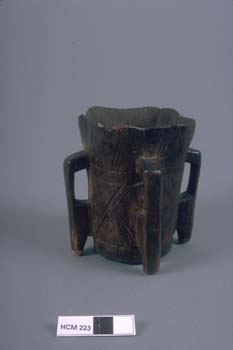Bee Laws
Joyce reports on a somewhat curious legal custom (which has parallels in India) in Early Ireland – the procedure by fasting. The plaintiff in a case (having served notice) simply went to the defendants house and went on hunger strike. As long as he remained there, the defendant was also obliged to starve himself/herself. In the event of the defendant refusing to co-operate, he was dishonoured and shunned. It was considered disgraceful not to submit. It has to be assumed that in most cases the case or debt would have been settled quickly!
The Brehon Law tract on “Bee-judgments,” is also an interesting and peculiar code. In the event of a man finding a swarm of bees in the area around a house, ¼ of the produce was due to him while ¾ were due to the owner. If found in a tree he could claim ½ and if found in commonage all bees and honey belonged to the finder save 1/9 which belonged to the chief of the tribe. Further, as Joyce describes it – ‘as the bees owned by an individual gathered their honey from the surrounding district, the owners of the four adjacent farms were entitled to a certain small proportion of the honey: and after the third year each was entitled to a swarm. If bees belonging to one man swarmed on the land of another, the produce was divided in certain proportions between the two.

A mether from the Hunt Collection
The word ‘mether’ we mentioned in an earlier post derives from the word for mead. So ‘mithered’ may mean ‘confused and bothered as a result of too much mead’!
This entry was posted on Saturday, December 8th, 2007 at 10:09 pm. It is filed under About the Beer, History and tagged with About the Beer, bees, brehon law, History, hunger strike, Ireland, Joyce, mead, mether.
You can follow any responses to this entry through the RSS 2.0 feed.



